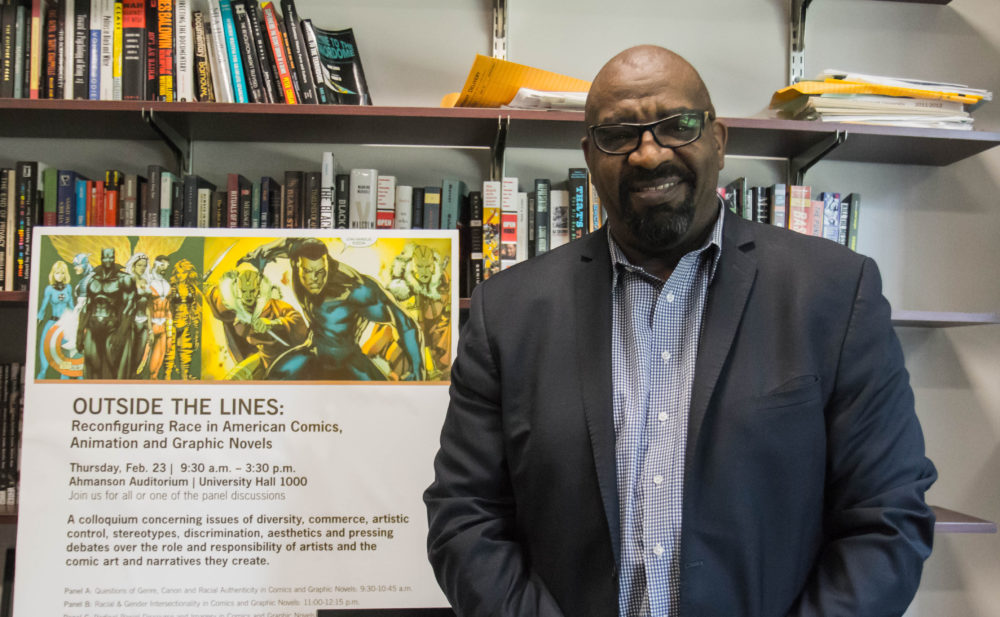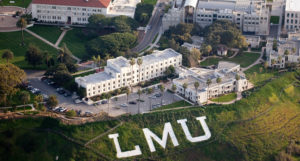ACADEMICS | It was just the moment for a superhero to emerge.
Think of the socio-political moment of July 1966: The Watts civil unrest ignited less than a year earlier sparked by deplorable police-community relations, and other cities had seen social- and political-inspired violence. Just over a year earlier, Alabama police rioted against civil rights workers at the Edmund Pettus Bridge. And as African-Americans formed self-defense councils, the Vietnam War raged, there were political battles over voting rights; and so much more.
On cue, in Marvel Comics’ “Fantastic Four” No. 52, the Black Panther, an African superhero, enlisted the foursome to help him defeat his archenemy, Klaw, and protect his homeland.
Fifty years later, Hollywood came calling.
Adilifu Nama, professor of African-American studies at Loyola Marymount University, writes in his book “Super Black: American Pop Culture and Black Superheroes” that T’Challa, whose alter ego is the Black Panther, was “more than an imaginary black superhero and African ruler.” The character was an idealized composite of many real-life black revolutionaries and anti-colonialist activists the world over. And, like so many comic book heroes, T’Challa was able to prevail when real life disappointed.
Nama has been encouraged by the response to the movie version of “Black Panther.” “I think we’re on the cusp of a cultural phenomena similar to ‘Star Wars,’ ” he said. “ ‘Star Wars’ was more than just a geeky thing; it was part of the national conversation, everyone knew it. It provided a fantasy-scape that captured the nation’s imagination. Now, ‘Black Panther’ has given us a vision of the world that challenges our imaginations.”
Underlying the success of “Black Panther,” Nama said, is that it is dispelling the pre-conceived notion that African-American films, or an all-black cast, won’t make money. “This film could be a disrupter of business as usual,” he said. He sees the present moment, with issues of race and culture at the very center of national conversations, as an exciting opportunity to see “Black Panther” inspire changes in black filmmaking and black politics that may be reconfiguring the film industry.
Nama, who earned his Ph.D. in sociology, specializing in media and race, from USC, was born in Cleveland and grew up in Culver City and Hawthorne, where he became fascinated with science fiction. In his youth, he devoured comic books by the dozens and watched “Twilight Zone” and “Outer Limits” on television. Later, he advanced to the literature of Asimov, Bradbury and the “Star Wars” films. He loved them all, he said, yet he was most taken by the black superheroes, such as Falcon, Captain America’s sidekick. His scholarship, including his books “Black Space: Imagining Race in Science Fiction Film,” “Super Black” and “Race on the QT: Blackness and the Films of Quentin Tarentino,” has been an outgrowth of his lifelong love of the genre.
He said it is very important to have a successful sequel to “Black Panther.” “It’s a Hollywood adage: you’re only as good as your last film,” he said. “I see ‘Black Panther’ as a flawed masterpiece; it fleshes out the tensions of the times around race, politics and the African-American experience, but I see some gaps that could be filled-in in a second film.”




